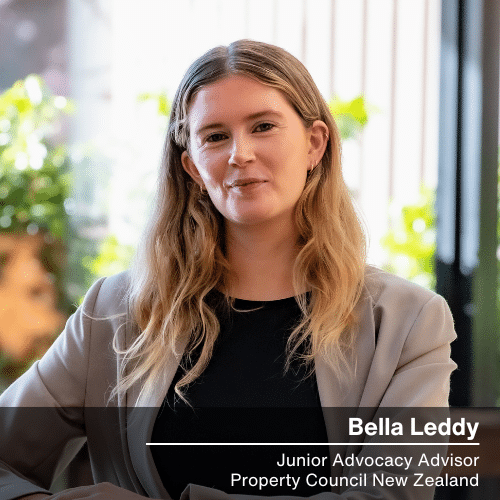Councils around New Zealand have recently made key decisions on their Annual Plans, Development Contribution fees, and water services. Property Council has been actively engaging in these local government processes, and we’ve outlined the latest outcomes below.
Auckland Council Annual Plan 2025
Property Council recommendation
Auckland Council Decision
Outcome
Make clear in the Long-term Plan 2026-2036 the timeline for reducing the business differential.
Not adopted.
Loss.
Auckland Council’s Draft DC Policy 2025
Property Council recommendation
Auckland Council Decision
Outcome
Collaborate closely with developers already undertaking infrastructure investment in the IPAs to avoid the possibility of overcharging.
Council have agreed that developers contributing infrastructure in IPAs will receive a credit against development contributions ensuring costs are not duplicated.
Win.
Does not increase development contributions by the amount proposed and instead reduces the rate of increase and spread overtime.
Council have decided to increase fees over time. DCs start at a lower flat rate which increases by 2% every year. For example, development contribution fees in the investment priority years for 25/26 will be $48,000 which is down from the $68,000 consulted on, but with 2% increases per annum.
Partial win – lower costs than consulted on for initial years. However, higher costs longer term.
Seek to incorporate funding from the National Infrastructure Agency under the IFF framework.
IFF is acknowledged as a tool for a possible funding option, but the 2025 policy does not commit to any specific arrangements.
Partial win.
Consider targeted rates as an alternative funding mechanism.
The LTP does introduce targeted rates for growth areas though (e.g. City Centre Targeted Rate).
Partial win – as CBD only.
Introduce independent auditing of its costing assumptions and plans for infrastructure delivery. In particular, more detailed costings for stormwater provisioning is required.
The council committed to third-party reviews of stormwater projects but rejected broader audits.
Partial win – as third-party reviews of stormwater projects only.
Pause the DC policy and review the schedule of assets with the private sector. Once a pause and review are complete, phase in any changes to development contributions over a three-year period.
Not applied. Council considered but rejected a three-year phase in model and instead adopted the incremental increase by 2%.
Loss.
Auckland Council should create a 30-year strategic vision, with funding and financing structured in 10-year increments (instead of 30-years).
Not adopted.
Loss.
Ringfence DCs paid in an area to ensure they are used in that area.
Not adopted.
Loss.
Hamilton City Council’s Local Water Done Well
Property Council recommendation
Hamilton City Council Decision
Outcome
Property Council supports the proposal for Hamilton City Council to form a joint waters company with Waikato District Council.
Council have approved the decision to form a joint waters company with Waikato District Council.
Win.
Tauranga City Council Local Water Done Well
Property Council recommendation
Tauranga City Council Decision
Outcome
Property Council supports the proposal for Tauranga City Council to form a multi-Council Controlled Organisation (CCO) potentially with Western Bay of Plenty District Council and/or other councils.
Decision due 5 August.
TBC.
Property Council supports an integrated approach to water services, with the CCO managing all three waters.
Council resolved to keep all three waters together (drinking water, wastewater and stormwater).
Win.
Tauranga City Council’s Annual Plan 2025-26
Property Council recommendation
Tauranga City Council Decision
Outcome
Operational costs exceeded revenue, we recommended reducing expenditure.
TCC reduced operational expenditure by $9.85M.
Win.
Remove the industrial rating category. However, if the deletion is not considered we support the status quo namely, that all industrial properties are charged at the industrial property rate.
TCC has changed the definition of the industrial category to exclude any properties with a land area ≥250m².
Loss.
Make clear that the “growth pays for growth” principle means development contribution fees are ring-fenced and only covers cost for growth related infrastructure.
TCC feedback states that its financial system ensures DCs are spent only in the catchments/activities they were collected for and it is audited for compliance. However, shared infrastructure (e.g., upgrades to existing roads/networks) still allows some DC funds to cover non-growth costs.
Loss.
Produce a report on the total capital value of residential and commercial properties across Tauranga and divide rates more equitably and proportionally.
No commitment to publish a citywide CV report or adjust proportionality.
Loss.
Tauranga City Council’s DC Policy 2025/26
Property Council recommendation
Tauranga City Council Decision
Outcome
Pause the Draft Development Contributions Policy until the Government releases new requirements for councils under their development levies programme.
The Council have continued with the adoption of their Development Contribution Policy and look to increase the development contribution by 17.2%. This is higher than the 15% increase that Council consulted on.
Loss.
Implement alternative funding and financing tools for infrastructure to reduce cost pressures on new developments.
Not adopted.
Loss.
Waipa District Council Long term plan 2025-34
Property Council recommendation
Wellington City Council Decision
Outcome
Reduce the proposed rates increase to better reflect the financial reality of commercial and industrial businesses.
Not adopted. Rates will be increased further than what was proposed. By year two they will go from 10.7% (consulted on) to 12.5%.
Loss.
Investigate alternative funding and financing mechanisms.
Not adopted.
Loss.
Pause its draft development contributions review until the new levy system is in place.
Not adopted.
Loss.
Implement benchmarks or targets for climate change mitigation and adaptation.
Not adopted.
Loss.
Wellington City Council’s Draft Annual Plan 2025/26
Property Council recommendation
Wellington City Council Decision
Outcome
Adopt Option One under the Local Water Done Well proposals: a new multi-Council owned water organisation (CCO).
Adopted. Council will jointly establish a CCO with Upper Hutt City Council, Hutt City Council, Porirua City Council and Greater Wellington Regional Council.
Win.
Review and reduce the operational expenditure (currently sitting $48.5m higher than forecasted in the Long Term Plan).
The operating expenditure has been reduced, although the full $48.5M overspend is not fully eliminated.
Partial win.
Commence a staged reduction of the business differential until either removed or reduced to an equitable level over the next three annual plans.
Not adopted.
Loss.
Investigate a Regional Deal with Central Government.
Not adopted.
Loss.
Remove the vacant site differential.
Not adopted.
Loss.
Provide the commercial sector with evidence that demonstrates how Council’s spending will reflect the increased rates split of 48% commercial and 52% residential.
Not adopted.
Loss.
Christchurch City Council Draft Annual Plan 2025/56
Property Council recommendation
Christchurch City Council Decision
Outcome
Investigate a Regional Deal with Central Government
The Council acknowledged need for alternative funding through a potential regional deal with Central Government. They have stated that they are actively pursuing it, through the Canterbury Mayoral Forum.
Partial Win.
Review and reduce the operational expenditure (currently sitting $17.5m higher than forecasted in the Long Term Plan).
Council have increased operational spending of $871 million on the day-to-day services the Council provides. This is $9.7 million higher than proposed in the Draft Annual Plan.
Loss.
Seek advice on the cumulative impact of rates and fees for the commercial sector
Not adopted.
Loss.
Remove the vacant site differential in areas where council beautification of sites has been completed and develop a plan to remove the vacant site differential over a period of time.
Not adopted.
Loss.
Author | Bella Leddy
As Property Council’s Junior Advocacy Advisor, Bella supports the development of policy and advocacy initiatives that reflect the real-world experience of our members.
With a Bachelor of Laws and Politics from Otago University and previous experience as a policy intern at the Department of Internal Affairs, Bella brings both a sharp analytical mind and a genuine passion for public policy. She’s particularly energised by engaging with members to ensure our advocacy is grounded in industry insight and practical solutions.
Extroverted, thoughtful and service-focused, Bella thrives in roles that connect people and ideas. Outside the office, she channels her energy into teaching group fitness classes – including yoga, pilates and spin – and is always up for a good political yarn.


